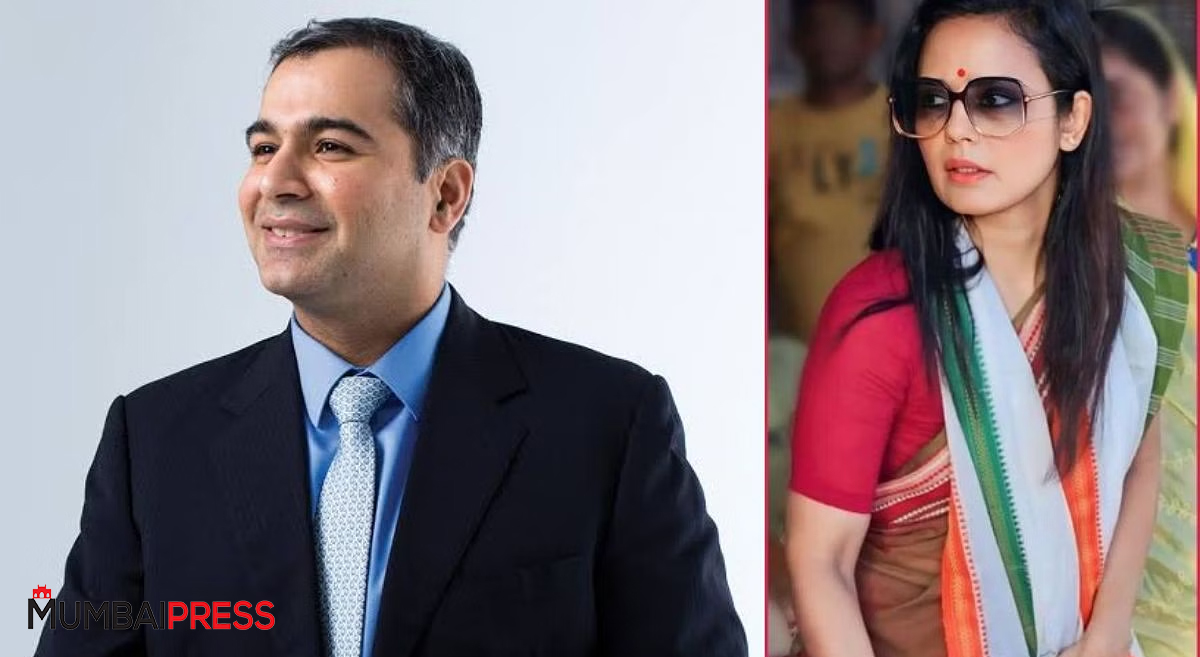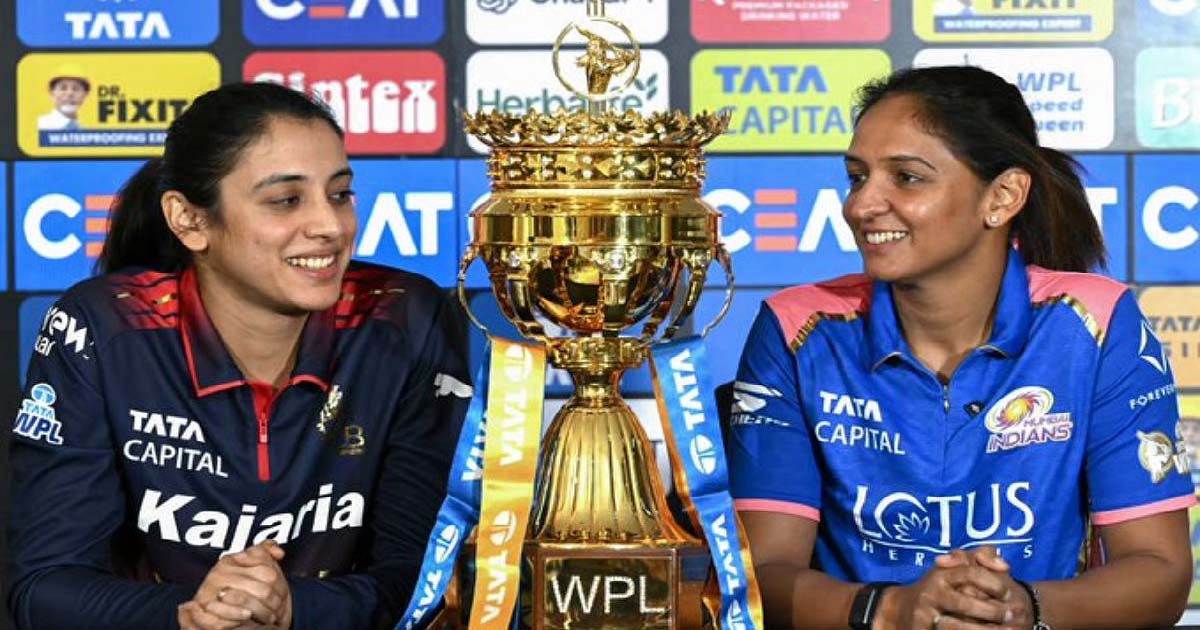Politics
From Targeting PM Modi To Demanding Luxury Items: 10 Explosive Claims By Darshan Hiranandani About Mahua Moitra

In a startling development, Darshan Hiranandani, the CEO of the Hiranandani Group, has made a series of explosive statements in a signed affidavit, alleging his involvement in aiding TMC MP Mahua Moitra in her efforts to attack the Adani Group in Parliament. The controversial revelations have sent shockwaves through the political and business communities, raising questions about the extent of influence and collaboration between business leaders and political figures.
Here are the ten explosive statements made by Darshan Hiranandani in his signed affidavit:
– Hiranandani disclosed a long-standing personal friendship with Mahua Moitra, which began when they met at the Bengal Global Business Summit in 2017.
– He believed that their friendship was based on their differing political ideologies, which added depth to their relationship.
– The two friends maintained close ties through regular in-person meetings, telephone conversations, and social gatherings, both in India and abroad.
– Hiranandani described Mahua Moitra as a dominating and assertive personality, who would insist on immediate assistance when requesting help.
– After her election as a Lok Sabha MP in 2019, Moitra’s ambition to establish herself on the national stage prompted her to target Prime Minister Narendra Modi by attacking Gautam Adani and his business group, as both hailed from Gujarat.
– Moitra leveraged existing resentment and jealousy within certain sections of the business, political, and media communities against Gautam Adani to support her efforts in tarnishing the Prime Minister’s image.
– She formulated questions meant to discredit the Adani Group and the government, using information provided by Hiranandani. He admitted to actively participating in this.
– Hiranandani went on to disclose that he had access to Moitra’s parliamentary account and was responsible for posting the questions she raised in Parliament, thereby contributing to her campaign.
– Moitra received support and unverified information from individuals such as Sucheta Dalal, Shardul Shroff, and Pallavi Shroff, who allegedly provided her with information to attack Gautam Adani and his companies. She also interacted with Congress leaders and international journalists from Financial Times, the New York Times, the BBC, etc.
– Hiranandani acknowledged that he fulfilled various personal requests from Moitra, including gifting expensive luxury items, contributing to the renovation of her official residence, covering travel expenses, and providing logistical support for her travels.
Birla refers matter to Parliament’s Ethics Committee
However, Mahua Moitra vehemently denied these allegations, calling the document shared by Hiranandani fake and the allegations baseless. Lok Sabha Speaker Om Birla has referred the matter to Parliament’s Ethics Committee for further investigation, and Hiranandani has deleted his social media account following the publication of his affidavit.
Mahua Moitra’s hits back at Darshan Hiranandani
In her reply, she asks Hiranandani why he did not release the letter officially if he had “confessed” to the claims.
“If indeed he was to witness all of my corruption, why was he with me during the time and why did he wait till now to make it public? Also if he wrote to the CBI and the LS speaker, why out of the 543 MPs would he forward the letter to Nishikant Dubey, whom I have repeatedly exposed in the parliament and the outside and against whom, I have filed pending privilege motions?”
In response to Moitra’s comments, Darshan Hiranandani has not yet provided an official response, and the authenticity of the affidavit remains a subject of controversy.
National News
Navi Mumbai Police Impose Traffic Restrictions Near D Y Patil Stadium During WPL 2026

Navi Mumbai: Navi Mumbai police will impose traffic restrictions on the service road near Dr. D. Y. Patil Stadium in Nerul from January 9 to January 17, 2026, to ensure security and smooth movement during the BCCI Women’s Premier League (WPL) T20 cricket matches.
According to the traffic control notification issued by the Turbhe Traffic Division, all types of vehicles will be barred from plying and parking on the service road between Bhimashankar Society and the L.P. Rickshaw Stand from 7 am to 11 pm on match days, as the route has been earmarked for the movement of players and dignitaries.
Deputy Commissioner of Police (Traffic) Tirupati Kakade said the restrictions are being enforced under provisions of the Motor Vehicles Act to prevent congestion and maintain law and order in the stadium vicinity during the matches.
Commuters have been advised to use the Sion–Panvel Highway, specifically the Uran Phata to L.P. Bridge stretch, as an alternative route to reach their destinations.
The restrictions will not apply to vehicles carrying essential commodities, police vehicles, fire brigade units, ambulances, government vehicles, other emergency services, and vehicles holding official passes issued by the WPL/IPL management.
Mumbai Press Exclusive News
Providing basic amenities to Mumbai is our priority, Samajwadi Party’s election manifesto released, Abu Asim Azmi claims to solve urban problems

Mumbai: The Samajwadi Party released its election manifesto for the Mumbai Municipal Corporation (BMC) elections at a press conference today. The party’s Maharashtra president Abu Asim Azmi presented this manifesto keeping in mind the basic problems of the people of Mumbai. Abu Asim Azmi has also promised free water supply along with basic amenities in the election manifesto. It has been promised to provide 700 liters of clean and free drinking water to every family in Mumbai daily. To raise the standard of education, it has been decided to improve the quality of municipal schools and provide scholarships and free facilities to needy students for higher education. It has also been declared necessary to arrange modern medical facilities, neighborhood clinics and free medicines in every ward of Mumbai in the medical department and health department. In addition, efforts have been made for equal employment opportunities. Creating new employment opportunities for the youth and making special projects to eliminate unemployment are also part of the election manifesto. Providing better facilities for the residents of slums, pucca houses and pothole-free roads in the city, bringing transparency in the functioning of BMC and eliminating corruption are also the main components of the election manifesto. Addressing the press conference, Abu Asim Azmi said that the Samajwadi Party is committed to the development of Mumbai and to providing its people with their fundamental rights. Our aim is not just to make promises but to make Mumbai a better and prosperous city.
National News
BMC Elections 2026: Mumbai Candidates Declare Massive Surge In Assets, Multi-Crore Wealth Revealed In Affidavits

Mumbai, Jan 08: Details of assets, profession and criminal records of selected candidates contesting the upcoming civic elections in Mumbai, as declared in their affidavits, are as follows:
Shaila Dilip Lande – Shiv Sena (Shinde), Ward 163 (Saki Naka)
Profession: Business
Total movable and immovable assets as of 2025: ₹8,18,76,134
Total movable and immovable assets as of 2017: ₹14,27,651
Criminal cases: 0
Found guilty: 0
Kamalakar Naik – Independent, Ward 169 (Kurla Nehru Nagar)
Profession: Business
Total movable and immovable assets as of 2025: ₹11,83,36,519
Total movable and immovable assets as of 2017: ₹1,92,76,226
Criminal cases: 2
Found guilty: 0
Dhanajay Pisal – Nationalist Congress Party (Ajit Pawar), Ward 111 (Kanjur Village)
Profession: Service
Total movable and immovable assets as of 2025: ₹21,82,57,202
Total movable and immovable assets as of 2019: ₹8,55,21,925
Criminal cases: 0
Found guilty: 0
Sonam Manoj Jamsutkar – Shiv Sena (UBT), Ward 210 (Mumbai Central)
Profession: Business
Total movable and immovable assets as of 2025: ₹14,38,84,259
Total movable and immovable assets as of 2017: ₹7,08,67,928
Criminal cases: 0
Found guilty: 0
Geeta Gawli – Akhil Bhartiya Sena, Ward 212 (Mahalaxmi–Umar Park)
Profession: Business
Total movable and immovable assets as of 2025: ₹7,26,92,393
Total movable and immovable assets as of 2017: ₹3,45,32,902
Criminal cases: 0
Found guilty: 0
Sana Haji Halim Khan – Shiv Sena (UBT), Ward 96 (Bandra East)
Profession: Not mentioned
Total movable and immovable assets as of 2025: ₹9,46,03,435
Total movable and immovable assets as of 2017: Not contested
Criminal cases: 0
Found guilty: 0
Nehal Shah – Independent, Ward 177 (Matunga)
Profession: Business
Total movable and immovable assets as of 2025: ₹7,04,11,095
Total movable and immovable assets as of 2017: ₹1,69,77,255
Criminal cases: 0
Found guilty: 0
Rajul Sameer Desai – BJP, Ward 56 (Goregaon)
Profession: Business
Total movable and immovable assets as of 2025: ₹24,28,81,925
Total movable and immovable assets as of 2017: ₹1,79,69,000
Criminal cases: 0
Found guilty: 0
Prabhakar Shinde – BJP, Ward 106 (Mulund)
Profession: Business
Total movable and immovable assets as of 2025: ₹17,63,01,181
Total movable and immovable assets as of 2017: ₹57,46,971
Criminal cases: 0
Found guilty: 0
Neil Somaiya – BJP, Ward 107 (Mulund)
Profession: Business
Total movable and immovable assets as of 2025: ₹9,89,21,872
Total movable and immovable assets as of 2017: ₹1,99,37,809
Criminal cases: 0
Found guilty: 0
-

 Crime3 years ago
Crime3 years agoClass 10 student jumps to death in Jaipur
-

 Maharashtra1 year ago
Maharashtra1 year agoMumbai Local Train Update: Central Railway’s New Timetable Comes Into Effect; Check Full List Of Revised Timings & Stations
-

 Maharashtra1 year ago
Maharashtra1 year agoMumbai To Go Toll-Free Tonight! Maharashtra Govt Announces Complete Toll Waiver For Light Motor Vehicles At All 5 Entry Points Of City
-

 Maharashtra1 year ago
Maharashtra1 year agoFalse photo of Imtiaz Jaleel’s rally, exposing the fooling conspiracy
-

 National News1 year ago
National News1 year agoMinistry of Railways rolls out Special Drive 4.0 with focus on digitisation, cleanliness, inclusiveness and grievance redressal
-

 Maharashtra1 year ago
Maharashtra1 year agoMaharashtra Elections 2024: Mumbai Metro & BEST Services Extended Till Midnight On Voting Day
-

 National News1 year ago
National News1 year agoJ&K: 4 Jawans Killed, 28 Injured After Bus Carrying BSF Personnel For Poll Duty Falls Into Gorge In Budgam; Terrifying Visuals Surface
-

 Crime1 year ago
Crime1 year agoBaba Siddique Murder: Mumbai Police Unable To Get Lawrence Bishnoi Custody Due To Home Ministry Order, Says Report




















